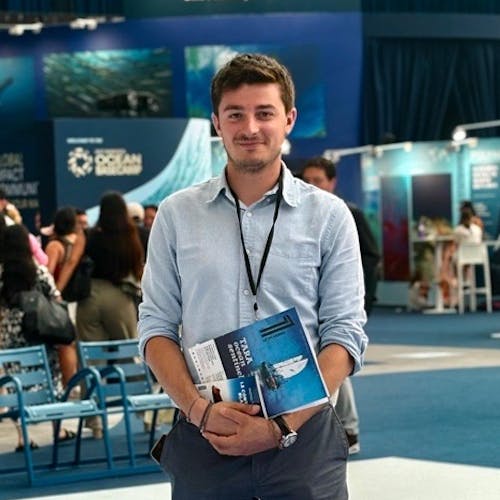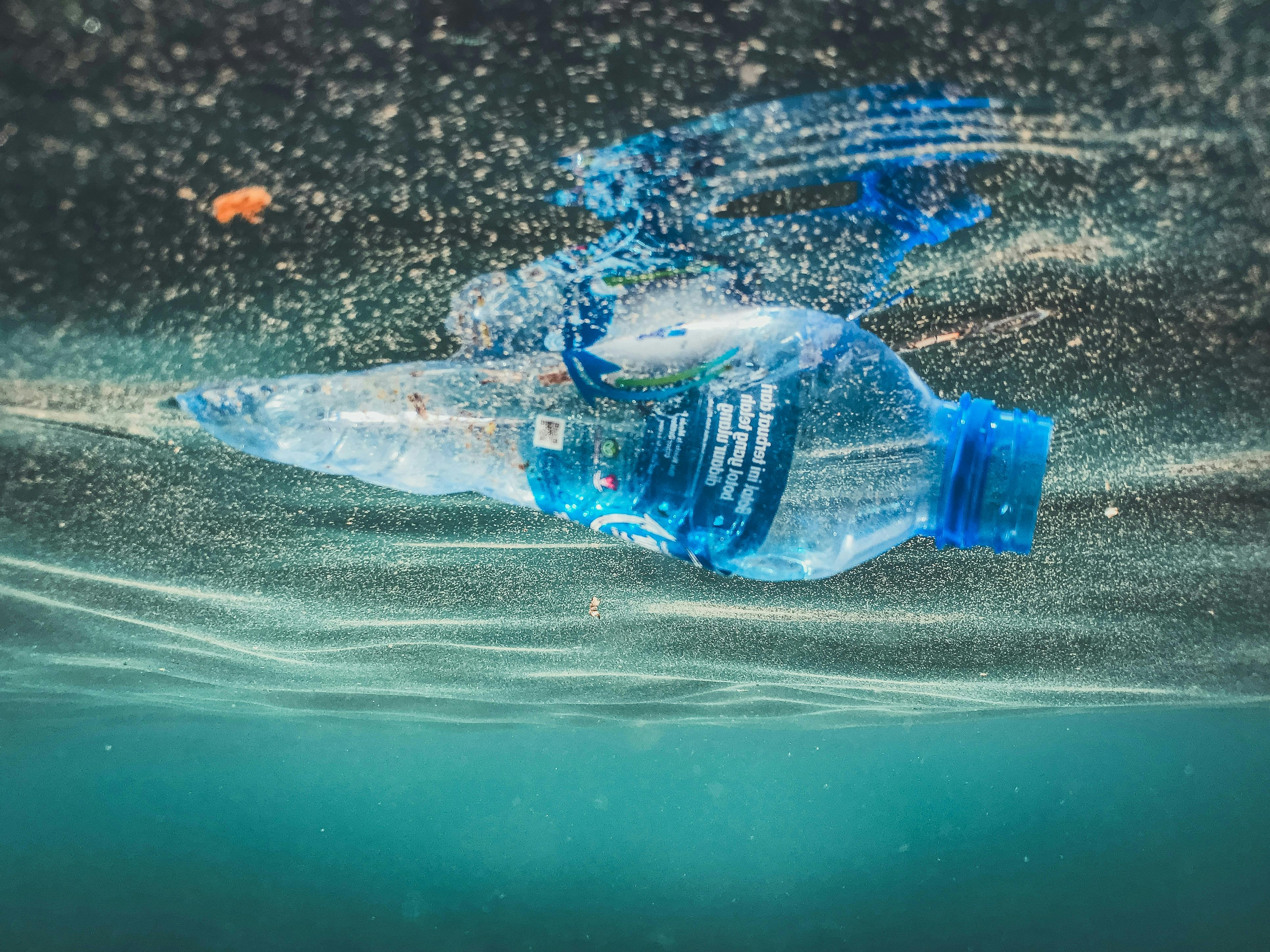Introduction
As efforts continue toward a meaningful Global Plastics Treaty, balancing ambition with consensus remains essential. With strong EU leadership, the challenge is to unite countries without weakening the treaty’s goals. The next International Negotiating Committee (INC) will be a pivotal moment to see if agreement can be reached without compromising effectiveness.
The long journey toward a Global Plastics Treaty and the state of country positions
For the past three years, countries have been meeting at the INC to negotiate the contents and scope of a Global Plastics Treaty. A final agreement was aimed to be found at the fifth session in Busan, South Korea at the end of 2024. But it became clear that more discussions were needed and therefore negotiations were deferred to another session, an INC-5.2.
However, the negotiations for a future plastics treaty did significantly progress in Busan with positions becoming clearer and more explicit. 100 countries, including the EU and its member states, expressed their support for clear elements essential to an effective plastics treaty, including:
· reducing plastic production
· banning hazardous chemicals and problematic or unnecessary plastic products
· providing effective means of implementation, including appropriate funding
· providing decision-making rules that prevent a small number of countries from blocking progress, and that allow the treaty to be strengthened over time.
Building on this momentum, during the third United Nations Ocean Conference (UNOC) in June 2025, the Nice wake up call renewed the commitment to an ambitious plastics treaty. This ministerial declaration, endorsed by 95 countries reaffirmed their shared goal to end plastic pollution to protect human health and the environment, based on a comprehensive approach that addresses the full lifecycle of plastics, as mandated by UNEA resolution 5/14.
Yet a handful of predominantly oil, gas, and plastic-producing countries, including Saudi Arabia, Iran, and Russia have been obstructing any progress and derailing the process from the beginning of the negotiations close to three years ago. Following the return of Donald Trump to the White House, the United States has increasingly aligned itself with this so-called “like-minded group” of countries. Within the first couple of months in his second term, the returning US President reversed climate action laws and instead promoted the expansion of fossil fuel extraction and brought back plastic straws in the US
Seeking common ground should not come at the expense of ambition and effectiveness.
Looking for common ground is part of every negotiation, yet this should not compromise the effectiveness of the future instrument. As we approach the final stages of the process, the temptation to reach any agreement, simply for the sake of concluding the negotiations in Geneva in August, has grown. But the goal remains a meaningful outcome, not merely a symbolic one.
Already, numerous concessions have been considered on key elements supported by a majority of countries, including on addressing production and chemicals. Yet throughout the process, there is a real risk that even those countries who have championed ambition until now feel the pressure to make further compromises that would endanger the future effectiveness of the treaty just to get a deal over the line. At the same time, a small group of blocking countries has shown no intention to move from their entrenched positions. Their approach, marked by bad faith and procedural obstruction, along with a refusal to engage constructively or acknowledge scientific realities, has left the negotiations largely gridlocked. The EU and other ambitious countries in this process must resist the pressure to dilute their positions and instead seek to shift the dynamic. Until now, negotiations have largely been shaped by those unwilling to move.
Yet throughout the process, there is a real risk that even those countries who have championed ambition until now feel the pressure to make further compromises that would endanger the future effectiveness of the treaty just to get a deal over the line.
In an age of “America First”, resurging nationalism, and a US tariff war, successfully concluding this international treaty would be a powerful demonstration that multilateralism can still deliver. Yet, multilateralism is not about reaching consensus at any cost. It demands meaningful cooperation based on the common good, not agreement around the lowest common denominator or giving de facto veto right to one or a handful of countries. True multilateralism means forging shared, effective solutions to a widely evidenced and acknowledged global problem. It does not mean allowing vested interests to shape multilateral instruments, at the risk of watering down their objectives and provisions to the point of adopting a useless instrument. Countries should make use of the tools and mechanisms to make decisions available in the UN system , such as voting, when efforts to reach consensus have been exhausted
True multilateralism means forging shared, effective solutions to a widely evidenced and acknowledged global problem.
A treaty that is fit for purpose is what matters, not a treaty at all costs. A treaty without binding obligations would be completely ineffective. Also, a narrow approach to the treaty, focused exclusively on waste management, would only address part of the problem . A full life cycle approach is necessary to take into account plastics along the entire chain, from the extraction of raw materials and production of plastics to their conversion into products, to waste management and recycling. A Global Plastics Treaty limited to waste management would fail to tackle the environmental, climate and human health impacts associated with plastic production and use. It would, in doing so, make it impossible to meet the EU’s and global climate goals. If plastic production continues to grow at the current rate, it could consume up to a third of the remaining carbon budget needed to meet the 1.5°C goal of the Paris Agreement. A treaty that does not address the root cause of the problem would only entrench the status quo and deepen the plastic pollution crisis for decades to come.
Bridging ambition and agreement through EU leadership
The EU has been and must remain a driving force behind efforts to secure an ambitious and effective plastics treaty. Its leadership is essential to ensure the treaty adopts a full life-cycle approach to plastic pollution and includes the appropriate legal provisions and mechanisms needed for long-term impact and continuous strengthening.
The EU has been at the forefront of policymaking to address the plastics crisis with legislations and strategies aiming to transform the way plastic products are designed, produced, and used, and how plastic waste is managed. It has championed the landmark 2019 Single Use Plastics Directive, which has inspired similar policies in other countries, and has more recently revised its packaging rules to include waste reduction and reuse targets. The EU has also adopted the first region-wide legislation to address the loss of pellets - the building blocks of any plastic products - across the supply-chain. This leadership was reaffirmed with the adoption of the European Ocean Pact, which includes a clear call to secure a strong, legally binding treaty to end plastic pollution.
In the lead up to and at INC-5.2, The EU must reaffirm its commitment to include legally binding measures in the treaty to reduce production, ensure transparency and traceability of the chemicals of concern in plastics and eliminate chemicals of concern at a global level throughout the life cycle of plastics. The EU should also commit to providing mandatory financial resources to support the implementation of these measures.
The EU should also commit to providing mandatory financial resources to support the implementation of these measures.
On one hand, the EU must work with its allies, notably a number of countries in Africa and Latin America and the Caribbean, as well as Pacific Small Island Developing States, to build stronger support for the core treaty provisions that a majority of countries stood up for in Busan and in Nice. On the other hand, the EU should step up its efforts to get buy-in from other major actors to ensure an effective treaty. While building further consensus, the EU must also work towards overcoming the obstructionism of a small group of countries, led by Saudi Arabia, Russia and Iran, which have an interest in promoting plastics as a fallback for fossil fuels amid the energy transition.
Ultimately, the dynamics in the negotiations in Geneva will need to shift from those of previous rounds of negotiations if a fit-for purpose treaty is to be adopted; solid and effective coordination between ambitious countries and their shared consideration of all tools available to land a meaningful treaty will be essential to such a shift.







